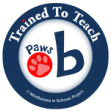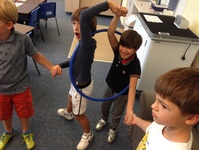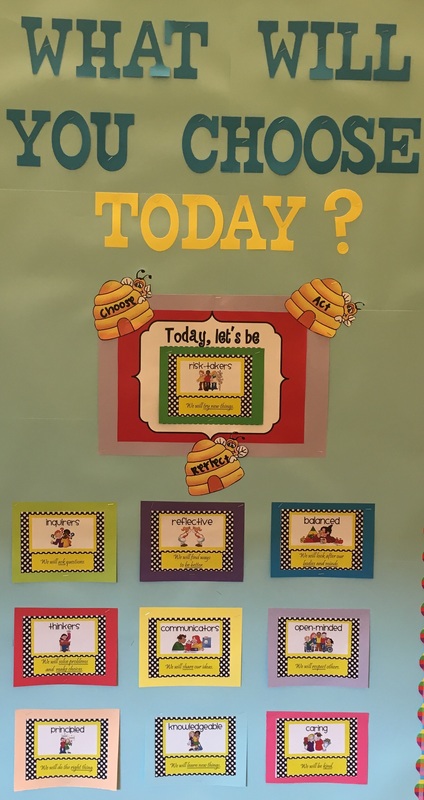ASW
|
|
Five Skills No Learner Should Be Without
2. Social Skills Perspective taking, the ability to understand others’ thoughts and feelings, improves people’s ability to navigate social situations. It’s often underdeveloped in students with social-emotional disabilities. Setting up an alternative small-group lunch or recess helps these kids tune in better to others, reduces social anxiety, and facilitates positive social interaction. Social successes improve a student’s self-esteem and often lead to fewer negative interactions throughout the day. 3. Executive Functioning Executive-functioning skills are key to setting goals and solving problems. They help students start tasks, organize materials, plan projects, manage time efficiently, and stay on-task. Students with poor executive functioning often have difficulty handling frustration and completing work. To boost executive functioning, use checklists and how-to lists, break long assignments into smaller chunks, and help students organize through calendars, time organizers and mnemonics. Communicating expectations visually - such as giving a student a laminated photo (“Here’s how your desk should look like when you’re ready to go to lunch”), rather than saying “Get ready for lunch!” - helps an organizationally challenged child remember what needs to be done. 4. Positive Thinking Students who struggle with positive thinking engage in all or nothing thinking (“I hate math”) or have frequent catastrophe thoughts (“If I fail this test, I’ll never get a good job!”). This can lead to shutting down before even trying an assignment - or out-right refusing to participate in a certain subject. To promote more positive, realistic thinking,
5. Flexible Thinking Flexible thinking enables students to manage unpredictable events and disrupted routines. Improving flexible thinking helps a learner adapt to new situations and improvise to meet different types of challenges. A great way to heighten this skill is to catch kids being flexible and reinforce them for it. Set up a Flexibility Jar and add a pom-pom to it every time the student demonstrates flexibility. Displays of flexibility might include calmly allowing a peer to use the computer first or saying, “Oh well!” when there’s an unexpected change like the class not being able to watch a planned movie. For young children, define flexibility as any time the child stops, stays calm, and makes a new plan. When educators structure problem-solving meetings using this skill-building lens, teachers feel more empowered. This attitude transfers to students. Everyone wins. By: Jessica Minahan and Diana Baker Educational Leadership Magazine-October 2015
0 Comments
 Dear ASW Elementary Parents, I am writing to you as one of your child’s school counselors. I am a teacher of classroom-based mindfulness techniques, having trained with Mindfulness in Schools Project. You may have heard of mindfulness or read some of the recent media coverage about it. A great deal of this media interest has arisen as a result of the growing body of rigorous research evidence regarding the potential benefits of mindfulness for young people. These include randomised control trials and neuroscientific studies. As Professor Katherine Weare observed in her award-winning research summary: Evidence for the Impact of Mindfulness on Children and Young People, schools who engage in mindfulness are likely to see ‘beneficial results on the emotional wellbeing, mental health, ability to learn and even the physical health of their students. Such interventions are relatively cheap to introduce, have an impact fairly quickly, can fit into a wide range of contexts and above all are enjoyable and civilising, for pupils and staff.’ The classroom-based mindfulness curriculum I offer is called ‘Paws b’. ‘Paws b’ is a 6-12 session curriculum for children aged 7 -11 and is offered formally as a series of PSHE lessons, and informally through integrating the learning and practice of mindfulness in all National Curriculum subjects and in the children’s everyday lives. During the course they will be learning about many things, including:
The feedback from children who have taken part in Paws b is very positive. They report enjoying the lessons and find the learning supports them in a broad range of situations from being able to concentrate and focus more easily in school to helping them feel calmer in exams and competitions. Many have described sharing the learning with other family members and finding it helps them with their relationships with family and friends. I would encourage you to view the ITV News item http://www.itv.com/news/wales/update/2013-12-08/new-mindfulness-techniques-used-in-schools/ where you can hear pupils speaking movingly about their experiences of developing mindfulness skills: Should you be interested in reading further about the body of research evidence around mindfulness, you may find the following document by Professor Katherine Weare: http://mindfulnessinschools.org/wp-content/uploads/2013/02/MiSP-Research-Summary-2012.pdf Further research studies regarding the benefits of mindfulness for young people but also school staff can be found on the Mindfulness in Schools Project Website: mindfulnessinschools.org - Research If you are interested in learning more, please don’t hesitate to contact either of ASW’s elementary school counselors.  What is IB? International Baccalaureate is a framework for teaching the core curriculum. It focuses on teaching students to be life-long learners. It also encourages students to become internationally minded which means recognizing a common humanity and creating a better and more peaceful world. IB teaches students to develop a love for learning and how to find answers to their own questions, to do their own research and to "dig" deeper into classroom subjects. IB is very hands on and does not have a lot of worksheets and "busy work". What does IB teach my child? The IB program focuses on the Learner Profile which has 10 attributes: Principled, Inquirer, Open-Minded, Communicator, Reflection, Knowledge, Balanced, Risk-Taker, Thinker, and Caring. There are 12 attitudes that help the student build their Learner Profile: Appreciation, Commitment, Creativity, Confidence, Curiosity, Cooperation, Empathy, Enthusiasm, Independence, Integrity, Respect, and Tolerance. What can I do as a parent to reinforce IB? Be positive, encouraging and support learning. Ask your student questions and provide them with learning opportunities. Try to familiarize yourself with the IB program and use the language (especially the attitudes) in your home. As part of the IB program, we encourage students to display the following attitudes: Appreciation – appreciating the wonder and beauty of the world and its people. We read Up the Learning Tree by Marcia Vaughan to introduce this attitude. Commitment – being committed to the learning, persevering and showing self-discipline and responsibility. We read The Story of Ruby Bridges by Robert Coles to introduce this attitude. Confidence – feeling confident in their ability as learners, having the courage to take risks, applying what they have learned and making appropriate decisions and choices. We read Dancing in the Wings by Debbie Allen to introduce this attitude. Cooperation – cooperating, collaborating, and leading or following as the situation demands. We read Click Clack Moo by Doreen Cronin to introduce this attitude. Creativity – being creative and imaginative in their thinking and in their approach to problems and dilemmas. We read Freefall by David Weiner to introduce this attitude. Curiosity – being curious about the nature of learning and of the world, its people and cultures. We read Why Explore? by Susan Lendroth to introduce this attitude. Empathy – imaginatively projecting themselves into another’s situation, in order to understand his/her thoughts, reasoning and emotions. We read Cleversticks by Bernard Ashley to introduce this attitude. Enthusiasm - enjoying learning. We read The Night Before First Grade by Natasha Wing to introduce this attitude. Independence – thinking and acting independently, making their own judgements based on reasoned principles and being able to defend their judgements. We read I Can by Susan Winter to introduce this attitude. Integrity – having integrity and a firm sense of fairness and honesty. We read Pedrito’s Day by Luis Garay to introduce this attitude. Respect – respecting themselves, others and the world around them. We read The World Turns Round and Round by Nicki Weiss to introduce this attitude. Tolerance – feeling sensitively towards differences and diversity in the world and being responsive to the needs of others. We read Smoky Night by Eve Bunting to introduce this attitude. IB Learner Profiles We also aim to cultivate students who are: Inquirers~ They develop their natural curiosity. They acquire the skills necessary to conduct inquiry and research and show independence in learning. They actively enjoy learning and this love of learning will be sustained throughout their lives. Knowledgeable~ They explore concepts, ideas and issues that have local and global significance. In so doing, they acquire in-depth knowledge and develop understanding across a broad range of disciplines. Thinkers~ They exercise initiative in applying thinking skills critically and creatively to recognize and approach complex problems, and make reasoned, ethical decisions. Communicators~ They understand and express ideas and information confidently and creatively in more than one language and in a variety of modes of communication. They work effectively and willingly in collaboration with others. Principled~ They act with integrity and honesty, with a strong sense of fairness, justice and respect for the dignity of the individual, groups and communities. They take responsibility for their own actions and the consequences that accompany them. Open-minded~ They understand and appreciate their own cultures and personal histories, and are open to the perspectives, values and traditions of other individuals and communities. They are accustomed to seeking and evaluating a range of points of view, and are willing to grow from the experience. Caring~ They show empathy, compassion and respect towards the needs and feelings of others. They have a personal commitment to service, and act to make a positive difference to the lives of others and to the environment. Risk-takers~ They approach unfamiliar situations and uncertainty with courage and forethought, and have the independence of spirit to explore new roles, ideas and strategies. They are brave and articulate in defending their beliefs. Balanced~ They understand the importance of intellectual, physical and emotional balance to achieve personal well-being for themselves and others. Reflective~ They give thoughtful consideration to their own learning and experience. They are able to assess and understand their strengths and limitations in order to support their learning and personal development. BulletinBoardResource: https://mstwistsclassroom.wordpress.com/2012/09/26/an-ib-prek3-circle-time/ |


 RSS Feed
RSS Feed
